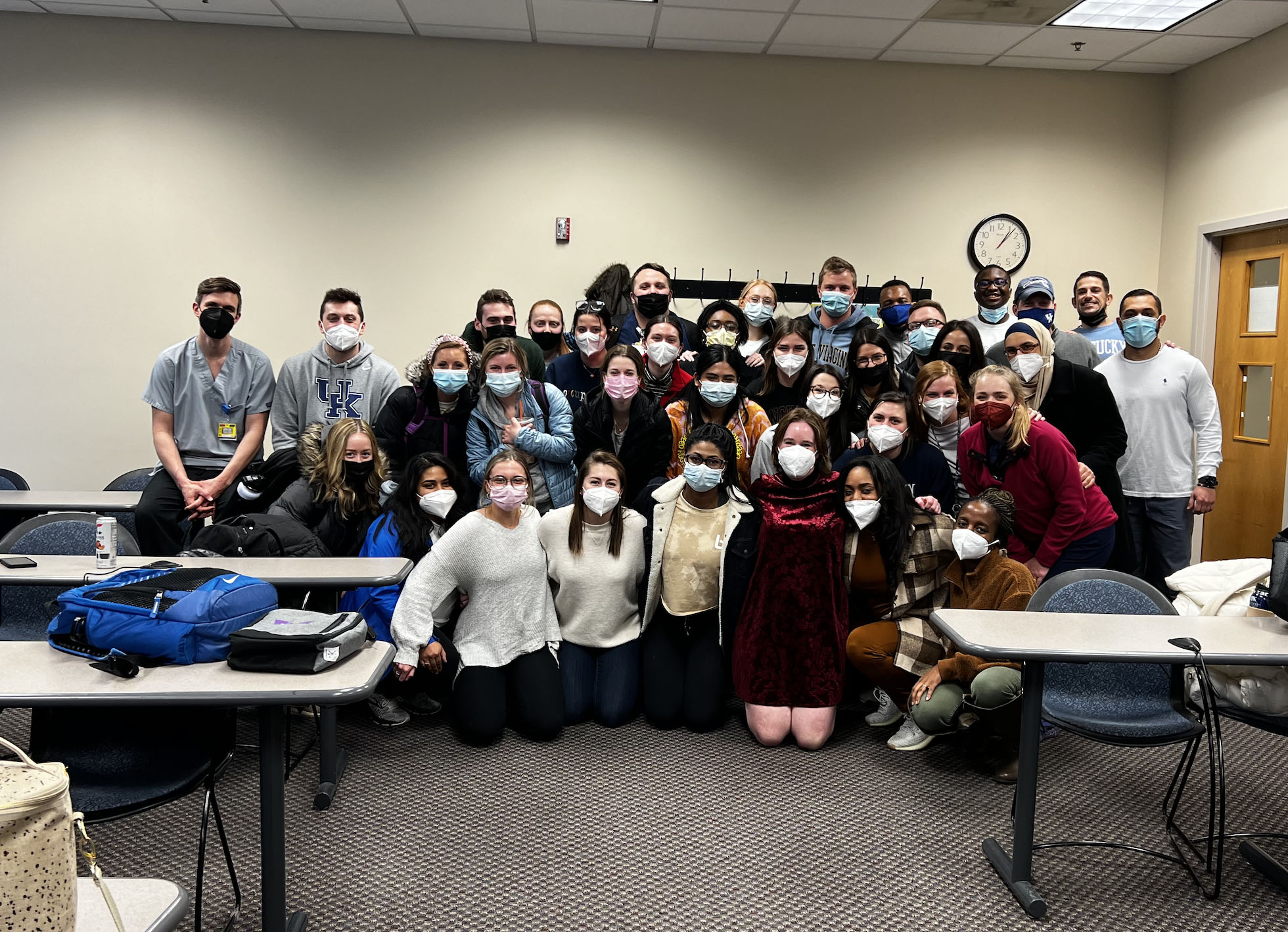$367K Grant Will Allow PAs to Prescribe Treatment for Opioids
Mar 1, 2022
By Austin Robinson and Ryan Clark
CHS Contributors
Working with Veterans holds a special place in Cheryl Vanderford’s heart.
And through that work, she received firsthand experience by providing substance use disorder treatment as a Physician Assistant. This inspired her to apply for a much-needed grant that will help the Commonwealth.
Vanderford, MPAS, PA-C, is an Assistant Professor in the Department of Physician Assistant Studies in the College of Health Sciences. She is a UK PA alumna from the class of 2008 and served as a PA in the Mental Health Service at the Lexington Veterans Affairs HealthCare System, where she worked in a variety of settings, including a residential treatment program for Veterans diagnosed with PTSD and/or substance use disorders.
In the fall, Vanderford and her team were awarded a grant from the Department of Health and Human Services (DHHS) Substance Abuse and Mental Health Services Administration (SAMHSA) Center for Substance Abuse Treatment. Though they got the grant in October, the process to apply for it began almost a year earlier, and it will provide incentives for students to complete surveys related to MAT waiver training. It will also fund standardized patient simulations where patients will portray a patient with SUD, as well as a CME symposium and additional training opportunities for UKPA students, alumni and preceptors.

The training program, entitled PAthways to a Healthier Kentucky through Expansion of MAT Waiver Training, is designed to provide PAs the education and training hours needed for the MAT waiver. Simply, this will give PAs the ability to prescribe buprenorphine for the treatment of opioid use disorder (OUD). (PAs that complete 24 hours can prescribe buprenorphine to 100 patients.)
“The main audience for this study is current and future alumni,” Vanderford said. The $367,171 will be paid out in three installments over three years.
This program will help those in need get the treatment they deserve, Vanderford said. Not only will this training program provide help to those with OUD, but it will also give PAs an additional skillset on the job market.
“This grant will not only prepare new graduates, but it will also allow PAs who have been practicing for years the opportunity to get this training for free,” she said.
In 2021, the Kentucky Justice and Public Safety Cabinet and Office of Drug Control Policy (ODCP) announced that the state’s 2020 Overdose Fatality Report showed more than 1,964 Kentuckians died from drug overdoses in 2020 — a 49 percent increase in drug overdose deaths compared to the previous year.
The reason?
According to resident cases autopsied by the Kentucky Office of the Medical Examiner and toxicology reports submitted by Kentucky coroners, the increase in the death toll was driven mostly by a rise in opioid abuse, which was found in 1,393 cases, or about 71 percent of all overdose deaths for the year.
It's numbers like this that have Kentucky consistently ranked in the top 10 nationally for opioid-related deaths.
Vanderford says this opportunity will not only have a positive impact on the students and PAs, but it will also impact the communities that are served.
“There’s always a need for more access to treatment,” she said. “We’re going to graduate 57 PAs this year. That’s 5,700 people that can be reached, just from this year’s class. This grant from SAMHSA provides training for three years and we’re going to keep the training going, even after the grant runs out. Just think about how many people can be served by our PAs.”
Vanderford noted that this grant means more to her than some others.
“While my motivation for this project is personal, I’m very excited about the impact this will have on our students and those who need help,” she said.
__________________
Throughout March for Women’s History Month, the College of Health Sciences will spotlight Women Making History. Whether students, faculty, staff or alumni, these women are leading their fields of research, crossing traditional academic boundaries and impacting Kentucky’s most pressing challenges.